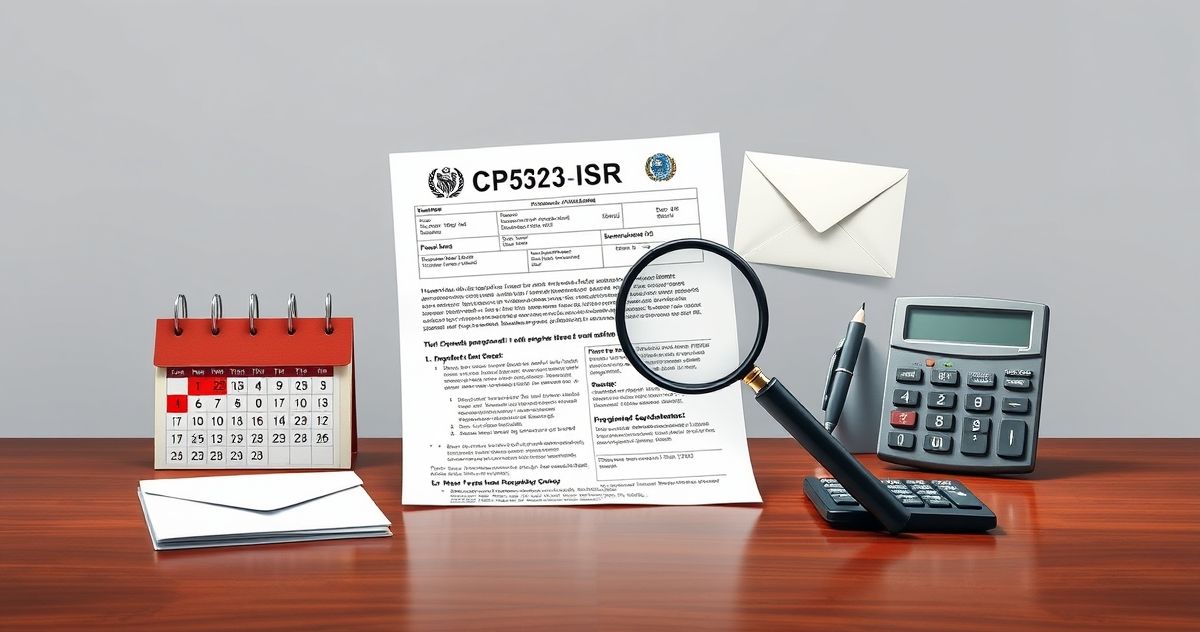Introduction to CP523R Notice
The CP523R Notice is a vital document issued by the Internal Revenue Service (IRS) that acts as an alert about potential issues with a taxpayer’s existing installment agreement. This notice is essentially a formal notification regarding specific problems that need urgent attention, such as missed payments, which risk the termination of the agreement. Understanding the CP523R Notice is essential for maintaining financial compliance and preventing additional penalties or collection actions.
What is the CP523R Notice?
The primary purpose of the CP523R Notice is to inform taxpayers that their current installment agreement, which allows them to pay off their tax debts over time, is in jeopardy. The IRS issues this notice when it detects issues such as missed or insufficient payments within the agreed installment plan timeline. This notice serves two key purposes: to alert the taxpayer of non-compliance and to provide an opportunity for rectifying the issues before the IRS takes further action.
Key Features of the CP523R Notice
1. Details of Non-Compliance: The notice clearly outlines the specific issues threatening the installment agreement, such as missed payments or insufficient amounts. It includes information on outstanding amounts and any accrued penalties or interest due to non-payment.
2. Steps for Resolution: The CP523R Notice provides a detailed guide on the necessary actions to remedy the installment agreement issues, often requiring immediate payment of the overdue amounts. It also includes information about how to contact the IRS to discuss any disputes or arrange an alternative resolution.
3. Deadline for Action: A critical component of the notice is the deadline by which taxpayers must act to resolve the pending issues. Failure to act within this timeframe can lead to grave consequences, including the termination of the installment agreement.
4. Contact Information: The notice provides all the necessary contact details for the IRS, enabling taxpayers to quickly reach the relevant department for dispute resolution or assistance in making payments.
Filing or Compliance Requirements
To ensure compliance, taxpayers receiving a CP523R Notice must adhere to the following requirements:
- Timely Payment: Payment of any outstanding amounts by the specified deadline to avoid termination of the installment plan.
- Documentation Submission: If disputing the notice or requesting plan modification, appropriate documentation must be submitted by the deadline outlined in the notice.
- Communication with IRS: Maintain open communication with the IRS to negotiate payment terms or discuss disputes.
Penalties for Non-Compliance
If the CP523R Notice is ignored or compliance requirements are not met, the following penalties or consequences may apply:
- Termination of Installment Agreement: Failure to address issues in a timely manner results in agreement termination, making the full owed amount payable immediately.
- Additional Penalties and Interest: Increased financial obligations due to continued accrual of penalties and interest on the unpaid tax balance.
- Enforcement Actions: The IRS might initiate collection actions, such as wage garnishments or bank levies, to recover the debt.
Importance of the CP523R Notice
The CP523R Notice represents a critical checkpoint in financial compliance and tax resolution. It emphasizes the importance of managing installment plans effectively to prevent severe financial repercussions resulting from agreement termination. Prompt response to this notice is paramount to maintaining an advantageous position with the IRS for negotiation or modification of payment plans.
Conclusion
Overall, the CP523R Notice serves as an essential alert system for taxpayers participating in installment agreements with the IRS. Understanding the components and implications of this notice ensures taxpayers can take decisive action to preserve their financial standing and compliance with IRS regulations. By addressing the CP523R Notice promptly, taxpayers not only prevent further collection actions but also uphold their responsibility to resolve tax liabilities efficiently.

